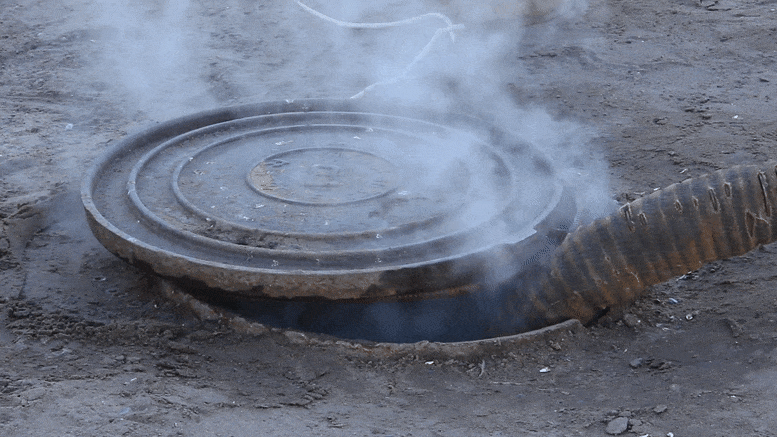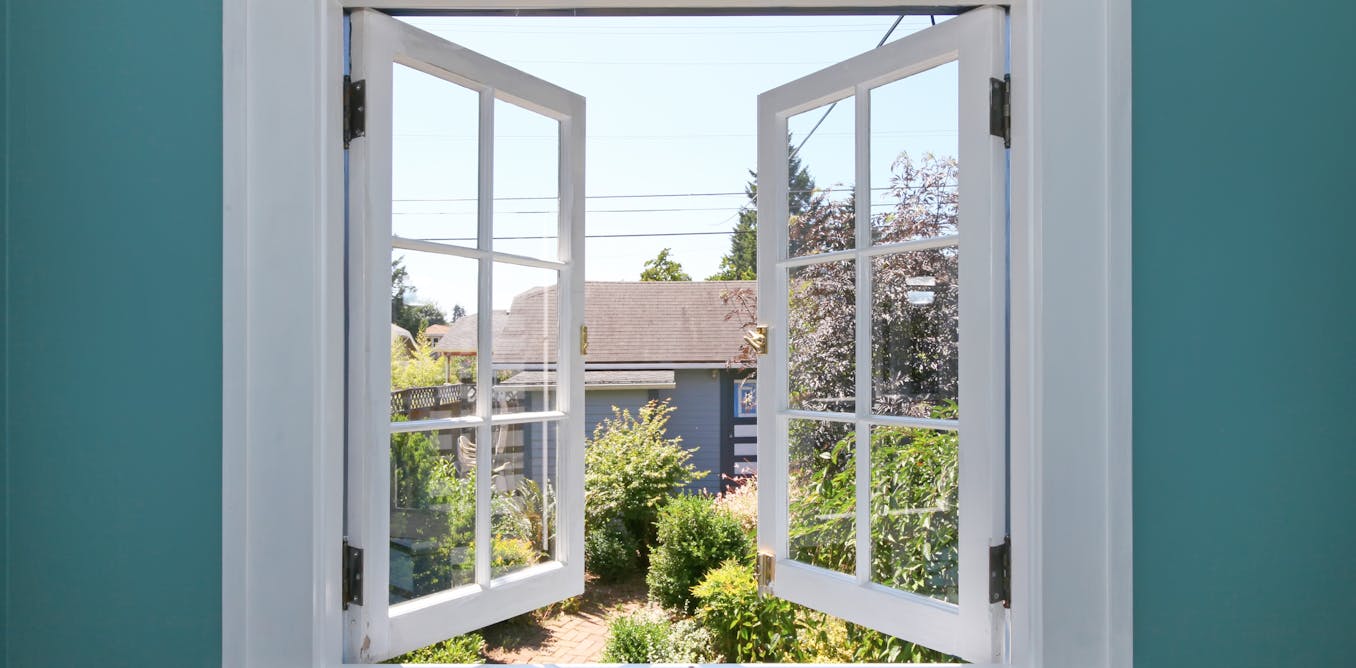You walk into your house. And there it is. That smell.
Yeah, the one you don’t want to name. The one that makes you stop and sniff—then pull back like you’ve been punched in the nose. It’s sour. It’s earthy. It’s like something crawled under the floor and gave up the ghost.
You’re not imagining it. And no, it’s not “just the pipes being weird.”
If your house smells like sewage, it’s your plumbing system waving a red flag. It’s saying, “Hey—something’s broken.”
The good news? Most of the time, it’s fixable. Fast. No drama. Sometimes, it’s as simple as running the tap for 30 seconds.
But here’s the real deal: ignoring it won’t make it go away. And worse—sewer gas isn’t just stinky. It can be a health risk if left unchecked.
Luckily, you’re not alone. And you don’t need a plumbing degree to fix it.
What’s That Smell?

First things first—what are we even smelling?
It’s not literal poop floating through the air (thank goodness). It’s sewer gas, a mix of gases created when waste breaks down in your pipes or the sewer system.
The main offender? Hydrogen sulfide. That’s the one that makes you think, “Did a dead raccoon sneak into the wall?” It smells like rotten eggs, spoiled cabbage, or moldy cheese. Not subtle. Definitely not welcome.
Other gases tag along too—like methane, ammonia, and carbon dioxide. Most of the time, these don’t reach dangerous levels in homes. But they can, especially if you’ve got a cracked pipe or a clogged vent.
According to the IICRC, prolonged exposure to sewer gas can cause headaches, nausea, or fatigue—especially if you’ve got asthma or other respiratory issues.
So yeah. It’s not “just a smell.” It’s a warning.
Top Causes
Alright, let’s figure out where it’s coming from. Spoiler: it’s probably not the toilet (though it could be).
Dry P-trap letting gas in
Got a bathroom you barely use? A spare shower? A basement sink that only sees action during holiday cleanups?
Here’s what could be happening: the P-trap under that drain has dried out.
What’s a P-trap? It’s that U-shaped pipe that holds water to block sewer gas from rising up. No water = no seal = gas sneaks straight into your home.
This is super common in guest bathrooms, vacation homes, or after long trips. The water just… evaporates. Happens to the best of us.
Fix it: Pour a quart of water down the drain. Boom. Seal restored. Smell gone.
Real talk: A woman in Orlando didn’t use her guest shower for four months. Came home, house smelled like a swamp. She ran the shower for two minutes. The smell vanished. Sometimes, it really is that easy.
Clogged vent pipe danger?
Now here’s one people overlook: your vent pipe.
Every plumbing system has pipes that go up through the roof. Their job? Let sewer gas escape—outside, where it belongs.
But if the vent gets clogged by leaves, bird nests, or ice… The gas has nowhere to go—so it backs up into your house.
Is a clogged vent pipe dangerous?
Yes. It’s not just an odor issue.
When pressure builds, methane and hydrogen sulfide get pushed into your drains and up into your living space. And if enough methane accumulates in a tight space (like a basement), it can become flammable.
Not common. But possible.
And that’s why a strong sewer gas smell in basement areas after a storm is a big red flag.
Sewage smell after rain?
Yeah, this one’s weird—but it happens all the time.
You wake up. It rained hard last night. And now? Your house smells like something died in the walls.
Why?
Heavy rain can overload sewer lines or block clogged vents. When water floods the system, pressure changes force sewer gas back into your home through the easiest exit: your drains.
So if you notice a sewer smell when it rains, especially in the basement or bathroom, check your roof vents. They might be blocked.
Pro tip: Run water down all your drains before and after heavy rain. It helps maintain the seal and keeps gas where it belongs—outside.
Broken toilet wax ring
That toilet you haven’t touched in years?
Yeah, it might be the problem.
Under your toilet, there’s a small wax ring that seals the base to the drain. Over time, it dries out, cracks, or gets misaligned—especially if someone rocked the toilet or tried to move it without shutting off the water.
If the wax ring fails, sewer gas leaks out around the base. Sometimes, you’ll even see water pooling there.
Telltale signs:
- Toilet feels wobbly
- Damp spot around the base
- Smell strongest near the toilet, especially after flushing
Fix: You can replace the wax ring yourself with a $15 kit. But shut off the water first. And maybe lay down a towel—this can get messy.
Bonus hack: Use a wax-free wax ring. No mess, fits better, and you can adjust it if it’s not perfect the first time.
Cracked sewer pipe
Now, the big one.
If the smell is strong, persistent, and worst in your basement… you might have a cracked sewer pipe.
Old cast iron pipes corrode over time. Tree roots can invade joints. Ground shifting can crack PVC.
When that happens, raw sewage and gas can leak into your crawl space or foundation—and seep into your home.
Signs of a cracked pipe:
- Constant sewage smell in basement
- Visible cracks or corrosion under sinks
- Damp spots in the yard
- Insects or rodents near foundation
This one’s not a DIY fix. You need a licensed plumber with a camera inspection tool. They’ll run a snake camera through your pipes to find the break.
Repairs might involve excavation or trenchless lining—depends on the damage. But the good news? It’s fixable.
Dirty drains and buildup
Sometimes, the cause isn’t a broken seal or cracked pipe. It’s just… gunk.
Food scraps, hair, soap scum, and dead skin build up in pipes. Bacteria feast on it. And as it decomposes, it releases hydrogen sulfide.
This is often the cause of a sewer smell in bathroom sinks or showers—especially if they’re used daily but never cleaned.
Fix: Clean your drains monthly. Try a mix of baking soda and vinegar, let it sit for 15 minutes, then flush with hot water. Or use an enzyme-based drain cleaner—it eats the gunk without harming pipes.
What To Do Right Now

Alright, you’ve read this far. So what’s next?
Let’s walk through a quick action plan.
Step-by-step fix
- Follow your nose Where’s the smell strongest? Bathroom? Basement? Near the toilet? Pinpoint the location.
- Run water in all drains Kitchen, bathroom, shower, floor drains. One minute each. This refills dry P-traps.
- Check the toilet Is it loose? Rock it gently. Any wobble = probably a broken wax ring.
- Flush all toilets Simple, but it helps reset the system.
- Still smells bad? It’s time to call a plumber. Look for someone with video inspection tools and proper licensing.
And while you wait for help…
Clear the air
Open windows. Run ceiling fans. Use an air purifier with a carbon filter—it absorbs gases, not just dust.
Don’t just mask the smell with sprays or candles. That’s like putting lipstick on a zombie. The problem’s still there.
If you’re feeling dizzy or nauseous, get outside. Fresh air helps. And if symptoms persist, talk to a doctor.
Keep It From Coming Back
You fixed it. Great.
Now, don’t let it happen again.
Prevention tips
Maintenance tips:
- Pour water down unused drains every 2–3 weeks
- Clean shower and sink drains monthly
- Trim trees away from sewer lines
- Inspect roof vents annually (or after storms)
- Replace toilet wax rings every 5–10 years
- Consider installing air admittance valves (AAVs) in remote plumbing areas
Here’s a simple checklist you can use:
| Task | Done? |
|---|---|
| Run water in all sinks | – |
| Flush all toilets | – |
| Check floor drains (basement, laundry) | – |
| Inspect toilet base for leaks | – |
| Smell test (yes, really) | – |
Do this once a month. Set a reminder. Your nose (and your family) will thank you.
When to Worry
Look, most sewage smells are fixable and not dangerous. But sometimes, it’s more serious.
Get out and call for help if you notice:
- Strong, persistent rotten egg smell (could be methane or natural gas)
- Everyone in the house has headaches or nausea
- You suspect a gas leak (natural gas also smells like rotten eggs)
- The smell doesn’t go away after basic fixes
Natural gas is odorless—but gas companies add a chemical called mercaptan so you can smell a leak. And that smell? Yep. Rotten eggs.
So if the smell is sudden, strong, and everywhere—leave the house and call emergency services.
You’ve Got This
Alright. Let’s wrap this up.
If your house smells like sewage, it’s not the end of the world. It’s not even a plumbing apocalypse.
It’s a fixable problem. Most of the time, it’s simple.
And now? You know what to do.
You know about dry P-traps. Clogged vents. Wax rings. Cracked pipes.
You know that sewer smell when it rains isn’t magic—it’s pressure. And that a sewer gas smell in basement areas needs attention.
So don’t ignore it. Don’t hope it’ll go away.
Try the quick fixes. Pour the water. Run the tap. Check the toilet.
And if it’s still there? Call a pro. There’s zero shame in that.
Your home should feel safe. It should feel clean.
And it should definitely not smell like a swamp.
You’ve got the knowledge. You’ve got the tools.
Now go fix it.

























Leave a Reply
You must be logged in to post a comment.